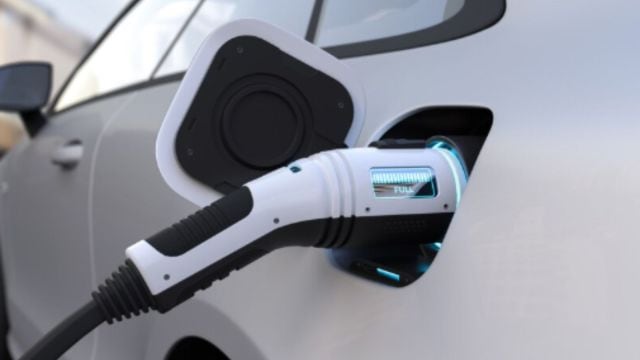How Indian EV makers are racing to go rare earth-free amid China’s chokehold
The company claims its in-house developed motor is free of seven heavy rare earth elements restricted by Beijing in April.
 Simple Energy’s reengineered motors have already entered the market with the company reporting record sales in October.
Simple Energy’s reengineered motors have already entered the market with the company reporting record sales in October.Written by Pratyush Deep
Amid Chinese restrictions on export of rare earth minerals, some smaller Indian companies are working on indigenous solutions to reduce dependence on imports. Two Bengaluru-based companies — Simple Energy and Chara Technologies — claim to have developed electric motors that eliminate the need for heavy rare earth elements — critical components in modern EVs.
While Simple Energy reengineered the magnet-based motor to do away with restricted rare earth elements, Chara Technologies is taking a different route altogether — developing motors that don’t use magnets at all.
Simple Energy’s reengineered motors have already entered the market with the company reporting record sales in October. However, commercial deployment of Chara Technology’s motors in EVs are yet to commence and likely to start from next quarter.
Simple Energy’s early move
Simple Energy homologated its heavy rare earth-free motor in July this year, just two months after China imposed export curbs on select rare earth materials. The company claims its in-house developed motor is free of seven heavy rare earth elements restricted by Beijing in April.
The company said it has replaced heavy rare‐earth magnets with “optimised compounds” (alternative minerals) and coupled that with “proprietary algorithms” (in-house control software). The most common electric motors used in modern EVs is the Permanent Magnet Synchronous Motor (PMSM) which uses permanent magnets made of rare earths such as neodymium, praseodymium, dysprosium and terbium.
Shresth Mishra, co-founder of Simple Energy told The Indian Express that the company’s patented in-house technology enables the magnetisation of these substitute materials — iron, neodymium, boron, praseodymium and holmium — through extensive testing and formulation to match the performance and efficiency of conventional heavy rare-earth-based systems.
“The motor is further powered by proprietary algorithms that intelligently manage heat, magnetic fields, and torque delivery in real time, ensuring consistent performance and reliability across diverse riding conditions,” he explained.
While neodymium and praseodymium are light rare earths, they are not part of the 12 elements that Beijing has imposed import curbs on so far. Holmium is a heavy rare earth element whose import was not restricted initially. However, it was later added to that list in October.
Mishra said they have already finalised magnets without Holmium to take to production and have stock from before the restrictions in October were announced.
“So, if the restrictions are extended to include the 12 elements, we will move forward with our plan of procuring the magnets without holmium and build a motor with it once the current stock is exhausted,” he added.
Mishra said their motor matches the efficiency of conventional rare earth-based motors in terms of specifications and performance. “The only variation is close to 0.5 per cent. So, in terms of the magnetic field and performance, we’re achieving the same results,” he said.
He added that the company had been developing the technology well before the Chinese curbs came into effect.
“Its just that we had to work around in such a way that we had to eliminate those elements which were there in the restriction list and replaced it with the elements which were not restricted,” he added.
Mishra claimed all of its current vehicles are completely free of restricted heavy rare-earth elements. The company also recorded its highest-ever monthly sales in October, at 1,050 units, a 215 per cent year-on-year increase, and has expanded its retail presence to around 61 stores across India.
Chara’s magnet-free motor
Chara Technology, meanwhile, has developed a magnet-free synchronous reluctance motor (SynRM) designed specifically for EVs. While SynRM motors are common in the industrial sector, its application in EVs has been limited due to challenges in matching compactness and efficiency of magnet-based motors.
The company claims it has developed a version of SynRM motor over the past six years which is engineered specifically for EVs.
“Those used in industrial applications typically run at low and constant speed. But our motors run up to the speed required for EVs, and operate across variable speeds: from zero to maximum,” Bhaktha Keshavachar, co-founder and CEO of Chara Technologies, told The Indian Express.
Keshavachar said Chara’s motor delivers similar torque and power as rare-earth-based motors, with only a slight increase in size — about 16 per cent larger, translating to an additional 1.5 kg in a two-wheeler and 3 kg in a three-wheeler.
Chara currently supplies its motors to customers in the agricultural and industrial equipment sectors. It expects EV deployment to begin by the end of the next quarter.
In the EV sector, its motor has so far entered only the three-wheeler segment.
“All materials used in building the motor are sourced from India. Electromagnetics, hardware, software, and manufacturing — everything has been designed from the ground up. Our systems are completely free of Chinese magnets,” Keshavachar said.
Strategic significance
These indigenous efforts come at a time when China — which controls over 90 per cent of global rare earth processing — has been tightening export regulations on these materials as a weapon in its trade war with the US. In April, China restricted seven rare earth elements — samarium, gadolinium, terbium, dysprosium, lutetium, scandium, and yttrium. This was followed by another five in October — holmium, erbium, thulium, europium, and ytterbium — along with related magnets and materials.
While the immediate impact of these restrictions is limited in India, it has intensified supply chain challenges for the auto industry, especially for the EV and electronics sector. Several Indian EV manufacturers, including Ola Electric and TVS Motor, are also said to be working on rare earth-free technologies. In October, Ola Electric also said its ferrite motor had received government approval.
Last week, China partly eased some restrictions on its export of critical minerals and rare earth minerals to the United States. However, it is not yet clear whether it means a complete roll back of China’s rare earth export control introduced in April. Earlier this month, the US claimed that China has agreed to issue general licenses for exports of rare earths, gallium, germanium, antimony and graphite for the benefit of U.S. end users and their suppliers.
According to the Ministry of Mines, India imported 2,270 tonnes of rare earth elements in 2023-24, up 23 per cent from 1,848 tonnes in 2019-20. Imports from China accounted for 65 per cent.





- 01
- 02
- 03
- 04
- 05

























